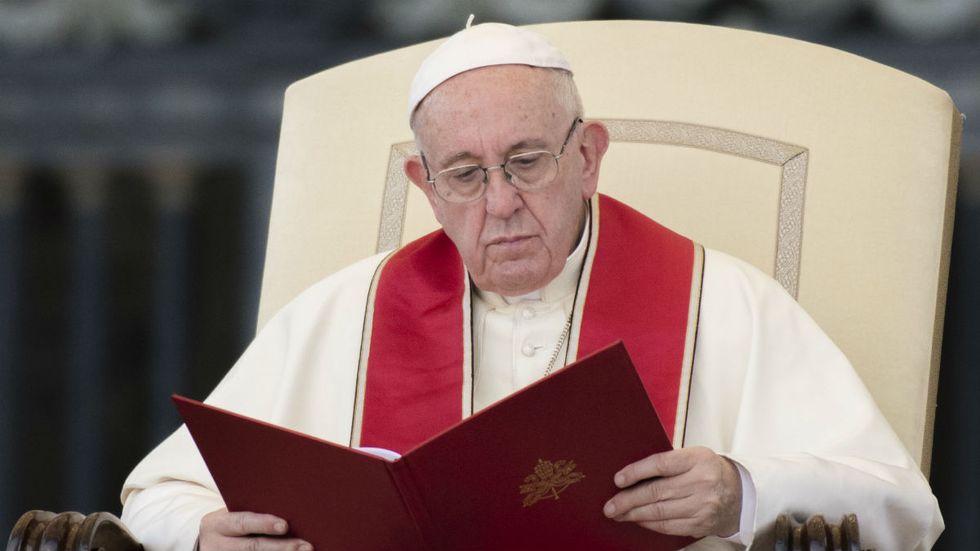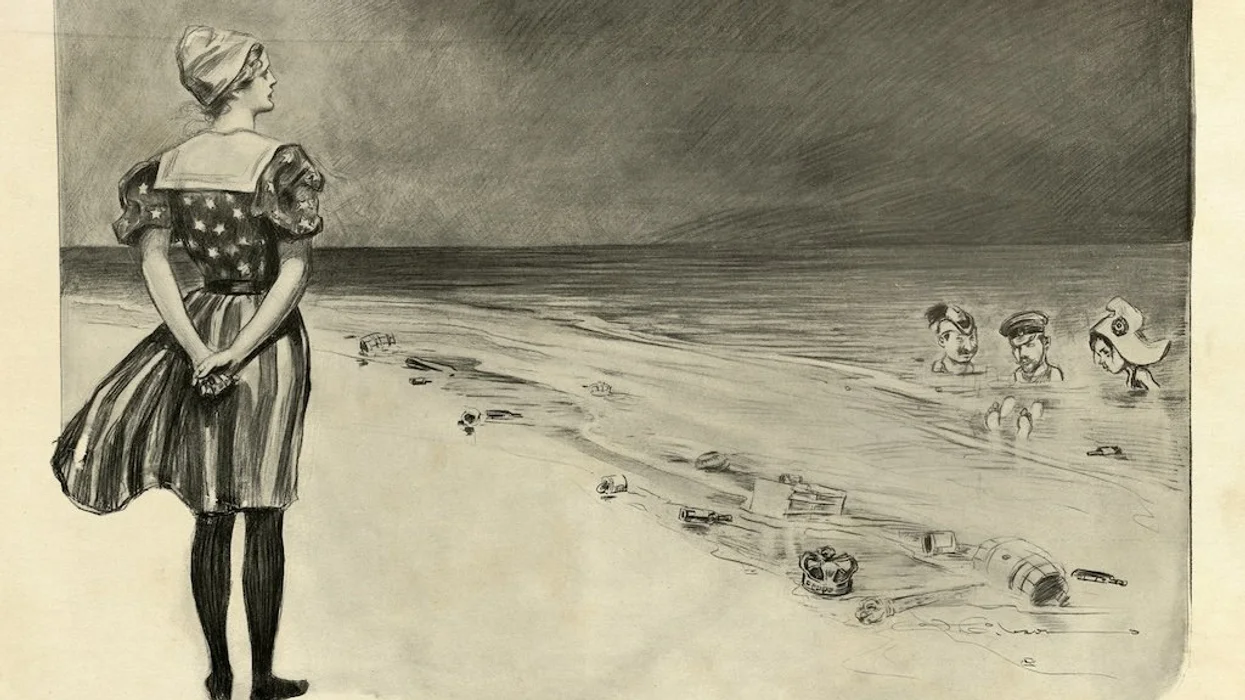
© 2025 Blaze Media LLC. All rights reserved.
What's a conservative Catholic to make of the Vatican’s death penalty decree?
August 03, 2018
There’s already an ocean of digital ink that’s been spilled in the past 24 hours over Pope Francis’ change to the catechism regarding the death penalty, but in my role as CRTV’s unofficial Vatican translator, I’ll throw my hat in.
Again, as faithful Catholics have been desperately explaining to the rest of the world (and far too often their own poorly-catechized co-religionists) since the start of the Franciscan Papacy, the Bishop of Rome does not have the power to unilaterally change doctrine. He is responsible to it, not it to him.
As it stands, the new paragraph to the catechism is more of a development to the doctrine than a complete reversal.
For Catholics, this all has to do with the difference between what orthodoxy (which is correct belief) and orthopraxy (which is the proper way to put those beliefs into practice). And while many outside of Catholic circles don’t understand this, many confirmed Catholics don’t seem to get it either.
As Ethika Politika editor Andrew Haines explains, this development is one of simultaneous discontinuity in practice, but continuity of belief. I.e., the shift comes from a deeper-rooted teaching in the dignity of the human person as created in the image of God. This is also echoed by the Congregation for the Doctrine of the Faith in a letter to bishops accompanying the change.
Put simply, the question here turns on whether or not there is a viable means of protecting society than taking human life. The older version of the Catechism acknowledges that this may not always be the case, even if such cases “are very rare, if not practically nonexistent.”
The new revision says, “more effective systems of detention have been developed, which ensure the due protection of citizens but, at the same time, do not definitively deprive the guilty of the possibility of redemption.”
Put simply, this is not the theological equivalent of a red light switching to green, nor does it say that the death penalty is an intrinsic evil, i.e., wrong in all times and all places like abortion. Furthermore, this isn’t binding in the same way that the Church’s teachings on say abortion or the Trinity are. That is, this edit doesn’t meet the requirements to be an infallible teaching and Francis didn’t invoke his authority to do so, so Catholics are free to debate this revision on its merits.
On the merits, there are indeed some points in need of clarification. The new version of the paragraph apparently assumes that all human societies between now and the Second Coming will have these means as a constant. This is not a constant. As long as humans have fallen natures and creation itself remains imperfect, all societies in all places may not have the luxury of penal systems that can negate the need to put dangerous criminals to death in order to protect the innocent, as they do currently.
This serves the church as a whole is not immune to confusing rollouts (just look at the whole history of the papacy) and the Church maintains that popes can indeed make doctrinal errors when not speaking ex cathedra. And Pope Francis is no stranger to saying things that make even the most learned Catholics scratch their heads.
Now, this is all just a humble layman’s explanation of the situation. For a deeper look at the situation, I highly advise the exceedingly-capable philosopher and theologian Edward Feser’s take on this.
The takeaway is that we’re just going to see how this plays out. This is yet another situation where looking at an institution that thinks in centuries through the lens of the modern mind, limited by a constant flow of digital information and a 24-hour news cycle is grossly unhelpful.
In the meantime, I challenge my fellow Catholics using this opportunity to spew vitriolic hot takes about Pope Francis on social media to instead allow the revision to challenge them, even if they ultimately side against the conclusion.
For example, I want to have the death penalty available, deep down. But I also realize that I don’t want this as a means of protecting the innocent or even retributive justice; I want it because I want revenge. When some animal is caught and convicted of something heinous enough, I want to see them executed brutally, swiftly, and publicly because it’ll make me feel better. And that makes me realize that I still have a lot of room to grow in the ways of charity and mercy. Perhaps others in my position might take the opportunity to find the same room to grow.
Look, the dust will eventually settle. It always has. It always does. And it will not do so any faster or slower based on how many internet points are scored on social media or how many bad misleading and misinformed headlines are published in the meantime.
#mc_embed_signup{background:#fff; clear:left; font:14px}
/* Add your own MailChimp form style overrides in your site stylesheet or in this style block.
We recommend moving this block and the preceding CSS link to the HEAD of your HTML file. */
Want to leave a tip?
We answer to you. Help keep our content free of advertisers and big tech censorship by leaving a tip today.
Want to join the conversation?
Already a subscriber?
more stories
Sign up for the Blaze newsletter
By signing up, you agree to our Privacy Policy and Terms of Use, and agree to receive content that may sometimes include advertisements. You may opt out at any time.
© 2025 Blaze Media LLC. All rights reserved.
Get the stories that matter most delivered directly to your inbox.
By signing up, you agree to our Privacy Policy and Terms of Use, and agree to receive content that may sometimes include advertisements. You may opt out at any time.



